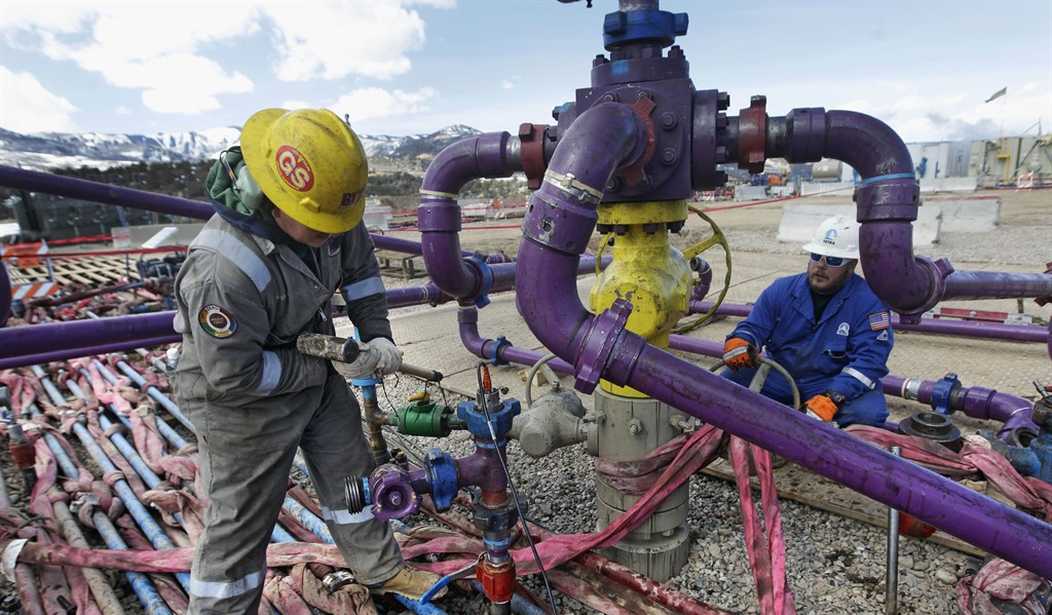On May 2 the Colorado Supreme Court’s unanimous decision declared Fort Collins and Longmont’s limits on fracking are “invalid and unenforceable” because state law trumps the local ordinances —a victory for oil-and-gas companies and a “disappointment” to anti-fossil-fuel activists. Several states, including Colorado’s neighbors, New Mexico and Texas, have faced similar anti-oil-and-gas initiatives that have also been shot down.
The consequences of the decision are “comparatively small,” according to the New York Times (NYT), as the land now opened up for exploration represents only a fraction of Colorado’s oil-and-gas development. “More significant, said experts on both sides of the conflict, is that the rulings shut down future efforts to stop fracking in local jurisdictions.”
The NYT points out: “Spurred by the rise of hydraulic fracturing, Colorado has become one of the nation’s largest producers of oil and gas. The state has more than 50,000 active oil and gas wells.”
According to a press release, the Colorado Petroleum Council “welcomed the decisions for upholding the state’s primacy in overseeing oil and natural gas permitting and curtailing ‘arbitrary bans’ on fracking that could cost local jobs, deprive state and local governments of tax revenue and limit access to energy resources.”
Upon hearing the news, I tweeted: “Great news! Colorado Supreme Court Strikes Down Local Fracking Bans.” Almost immediately, @AllNewSux responded: “@energyrabbit Hooray...now we can all drink poisoned water here in Colorado!”
What is @AllNewSux thinking? He is regurgitating outdated propaganda as study after study—though funders are disappointed with the results—determine, as did the three-year study by the University of Cincinnati released in February: “hydraulic fracturing of oil and gas wells … does not contaminate ground water.”
The University of Cincinnati study, reports the Free Press Standard: “aimed to measure methane and its sources in groundwater before, during and after the onset of fracking.” It concluded, “dissolved methane was detected in all sampled wells, however, no relationship was found between the methane concentration and proximity to natural gas wells.” The results of the study were released by Dr. Amy Townsend-Small, the lead researcher, during a February 4 meeting of the Carroll County Concerned Citizens in Carrollton, OH—part of a coalition of anti-fracking groups. Townsend-Small stated: “We haven’t seen anything to show that wells have been contaminated by fracking.” Her revelations must have been a shock to the group whose pre-meeting promotion included this comment: “We saw the debate about fracking’s impact on groundwater methane in Pennsylvania and the results of failing to have predrilling or baseline data for comparisons. Dr. Townsend-Small’s study provides landowners with that baseline data and helps to differentiate shale sources from non-shale sources of methane.”
Recommended
The Free Press Standard asked Townsend-Small about plans to “publicize the results.” She said there were “no plans to do so.” Why? “I am really sad to say this, but some of our funders, the groups that had given us funding in the past, were a little disappointed in our results. They feel that fracking is scary and so they were hoping this data could lead to a reason to ban it.”
Just a few months earlier, October 2015, a Yale study, reported in Nature World News, came to the same conclusion: “Fracking does not contaminate drinking water.” Then there is the 2014 research from Duke University’s Nicholas School of the Environment that found: “(The) gas data appear to rule out gas contamination by upward migration from depth through overlying geological strata triggered by horizontal drilling or hydraulic fracturing.” In 2013, the “highlights” of a study on the Fayetteville Shale in north-central Arkansas announced: “No relationship between methane and salinity in groundwater and shale-gas wells.”
Perhaps, this preponderance of evidence is what caused so-called expert Anthony Ingraffea to base his recent testimony at the federal trial regarding whether Cabot Oil & Gas was a “nuisance to two families” on “speculation.” In its coverage of the “sparsely attended” February 2016 trial, Philly.com points out: the plaintiffs were “unable to establish that chemicals from hydraulic fracturing got into their water, or that the drilling caused illness.” Coverage at the conclusion of the trial added: the plaintiffs “maintained that the methane contamination disrupted their lives and deprived them of the enjoyment of their property.”
During the trial, the plaintiff’s expert witnesses, both known anti-drilling activists, each acknowledged that they had no direct proof of claims they were there to support.
Additionally, the trial discovered that the plaintiff’s water troubles actually began months before Cabot began drilling nearby. U.S. Magistrate Judge Martin C. Carlson dismissed the property damage claim against Cabot, because as Philly.com reports: “the plaintiffs introduced no evidence that their property values had been affected.” Additionally, one of the plaintiffs, Scott Ely, “spent $700,000 to build his 7,000-square-foot home—after the water went bad.” Carlson, however, ruled that the plaintiffs had “elicited enough evidence that Cabot had been a nuisance.” A jury awarded $4.24 million to the two families based on nuisance.
Anti-fracking activists, like @AllNewSux, likely point to the award (which is being appealed) and see it as proof that fracking contaminates ground water. Though, a careful read reveals that no such evidence was found—only the speculation common among anti-fossil fuel claims.
One has to wonder how many more studies and court cases have to be carried out before the fear mongering and activist community finally stop wasting public money to kill jobs and raise energy costs.
























Join the conversation as a VIP Member